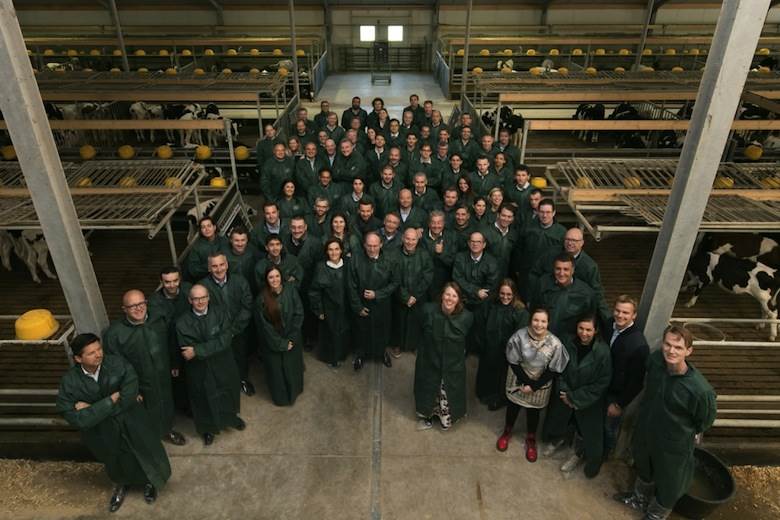Stahl hosts calf skin transparency and traceability event
03/11/2016

Also taking part in the all-Dutch event were livestock trading company PALI Group (a specialist veal producer), its Vitelco subsidiary (an important supplier of calfskins to tanneries serving the luxury leathergoods sector), and ROMPA Tanneries (the former Hulshof Royal Dutch Tanneries in the east of the Netherlands, taken over as a new joint venture between tanning group Rompa Leder and PALI in March 2014, now equipped to process calf skins into finished leather).
ReVeal participants showed examples of their efforts to make production processes more sustainable. Consumer-facing brands using leather to make accessories, footwear and garments were at the event, which included visits to a farm and a tannery. Stahl said this would give decision-makers “a better view” of efforts that are going on to improve animal welfare and reduce environmental impact without compromising on leather quality.
The audience also learned about Proviera - Probiotics for Leather, a range of probiotic-based products used in wet-end processing. The technology was developed by US company SCD Probiotics and Stahl secured distribution rights at the start of 2016. It is 100% biodegradable and based on a 100% natural probiotic formulation that can be used to prepare raw hides for tanning. Further processing of calf skins can take place with Stahl’s EasyWhite Tan chrome-free tanning system, to offer energy- and water-savings.
“Consumer brands, designers and purchasers are now increasingly taking the whole leather supply chain into account,” Stahl said after the event. “There is an increasing desire for more transparency and traceability, with an important objective to reduce the environmental impact throughout the supply chain.”
It went on to say that keeping the full leather production process in the Netherlands has “multiple benefits”: excessive transportation is avoided, fewer processing steps are necessary and no salt is needed to preserve skins.











